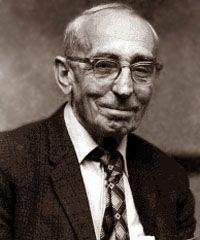Пользователь - o 3b3e7475144cf77c
На сайте mybooks.club вы можете бесплатно читать книги онлайн без регистрации, включая Пользователь - o 3b3e7475144cf77c. Жанр: Прочее издательство неизвестно,. Доступна полная версия книги с кратким содержанием для предварительного ознакомления, аннотацией (предисловием), рецензиями от других читателей и их экспертным мнением.
Кроме того, на сайте mybooks.club вы найдете множество новинок, которые стоит прочитать.

Пользователь - o 3b3e7475144cf77c краткое содержание
o 3b3e7475144cf77c читать онлайн бесплатно
"All flesh is grass, and all the goodliness thereof is as the flower of the field." So Lanny's stern
grandfather had quoted, at the time when Lanny was making a scandal in Newcastle by falling
in love with a young actress. The playboy thought of it now as he sat and watched this man who
might be as old as Grandfather Samuel. His suave manners were a mask and his soul a bundle of
fears. He had fought so hard for wealth and power, and now he sat and watched infirmity
creeping over him and everything slipping out of his grasp. "Then I looked on all the works
that my hands had wrought, and on the labor that I had labored to do: and, behold, all was
vanity and vexation of spirit, and there was no profit under the sun."
Secretiveness was the breath of the munitions king's being. For nearly a year he had had
Tecumseh and the spirits to himself, and if he had told anyone what was happening it hadn't
come to Lanny's ears. But he couldn't hold out indefinitely, because his soul was racked with
uncertainties. Was it really the duquesa who was sending him messages? Or was it merely a
fantasy, a cruel hoax of somebody or something unknown? Lanny had attended many seances,
and was continually studying the subject. The old man had to know what he made of it.
The sitting itself was rather commonplace. Evidently the munitions king and the spirit of his
dead wife had become established on a firm domestic basis. She came right away, as she would
have done if he had called her from the next room. She didn't have much to talk about—which
probably would have been the case if her "grass" had not withered and blown away. The only
difference was that Zaharoff would have known the "grass" for what it was; but this imitation
grass, this mirage, this painting on a fog—what was it? She assured him that she loved him—of
which he had never had any doubt. She assured him that she was happy—she had said it many
times, and it was good news if it was she.
As to the conditions of her existence she was vague, as the spirits generally are. They explain
that it is difficult for mortal minds to comprehend their mode of being; and that is a possibility,
but also it may be an evasion. The duquesa had given evidence of her reality, but now she
seemed to wish that he should take it as settled; that made her happier—and of course he
sought to make her happy.
But afterward he tormented himself with doubts. Should he torment her with them?
She greeted Lanny and talked to him. She had come to him first, with messages to her husband,
and now she thanked him for delivering them. It was exactly as if they had been together in the
garden of the Paris mansion. She reminded him of it, and of the snow-white poodles shaved to
resemble lions. She had escorted him into the library, and he, a courteous youth, had
understood that she might have no more time for him, and had volunteered to make himself
happy with a magazine. Did he remember what it was? She said: La Vie Parisienne, and he
remembered. He darted a glance at Zaharoff, and thought he saw the old white imperial
trembling. "Tell him that that is correct," insisted the Spanish duquesa with a Polish accent.
"He worries so much, pauvre cheri."
The spirit talked about the unusually wet weather, and about the depression; she said that
both would end soon. Such troubles did not affect her, except as they affected those she loved.
She knew everything that was happening to them; apparently she knew whatever she wanted to
know. Lanny asked her politely, could she bring them some fact about the affairs of her ancient
family which her husband had never known, but which he might verify by research; something
that was in an old document, or hidden in a secret vault in a castle; preferably something she
hadn't known during her own lifetime, so that it couldn't have been in the subconscious mind
of either of them?
"Oh, that subconscious mind!" laughed the Spanish lady. "It is a name that you make
yourself unhappy with. What is mind when it isn't conscious? Have you ever known such a
thing?"
"No," said Lanny, "because then it would be conscious. But what is it that acts like a
subconscious mind?"
"Perhaps it is God," was the reply; and Lanny wondered: had he brought with him some
fragment of the subconscious mind of Parsifal Dingle, and injected it into the subconscious
mind which called itself Maria del Pilar Antonia Angela Patrocino Simon de Muguiro у Berute,
Duquesa de Marqueni у Villafranca de los Caballeros?
VIII
When the seance was over, the maid invited Madame into another room to have tea; and Sir
Basil had tea and a long talk with Lanny. He wanted to know what the younger man had
learned and what he now believed. Lanny, watching the aging and anxious face, knew exactly
what was wanted. Zaharoff wasn't an eager scientist, loving truth for truth's sake; he was a man
tottering on the edge of the grave, wanting to believe that when he departed this earth he was
going to join the woman who had meant so much to him. And what was Lanny, a scientist or a
friend?
He could say, quite honestly, that he didn't know; that he wavered, sometimes one way,
sometimes the other. Then he could go on to waver in the right direction. Certainly it had
seemed to be the duquesa speaking: not the voice, but the mind, the personality, something
which one never touches, never sees, but which one comes to infer, which manifests itself by
various modes of communication. The duquesa speaking over a telephone, for example, and the
line in rather bad condition!
Zaharoff was pleased. He said he had been reading the books. "Telepathy?"' he said. "It seems to
me just a word they have invented to save having to think. What is this telepathy? How would
it work? It cannot be material vibrations, because distance makes no difference to it. You have
to suppose that one mind can dip into another mind at will and get anything it wants. And is
that easier to credit than survival of the personality?"
Said Lanny: "It is reasonable to think that there might be a core of the consciousness which
survives for a time, just as the skeleton survives the body." But he saw that this wasn't a
pleasing image to the old gentleman, and hastened to add: "Maybe time isn't a fundamental
reality; maybe everything which has ever existed still exists in some form beyond our reach or
understanding. We have no idea what reality may be, or our own relationship to it. Maybe we
make immortality for ourselves by desiring it. Bernard Shaw says that birds grew wings
because they desired and needed to fly."
The Knight Commander and Grand Officer had never heard of Back to Methuselah, and
Lanny told him about that metabiological panorama. They talked about abstruse subjects until
they were like Milton's fallen angels, in wand'ring mazes lost; also until Lanny remembered
that he had to take his wife to a dinner-party. He left the old gentleman in a much happier
frame of mind, but he felt a little guilty, thinking: "I hope Robbie doesn't have any more stocks
to sell him!"
IX
Lanny found his wife dressing, and while he was doing the same she told him some news.
"Uncle Jesse was here."
"Indeed?" replied Lanny. "Who saw him?"
"Beauty was in town. I had quite a talk with him."
"What's he doing?"
"He's absorbed in his election campaign."
"How could he spare the time to come here?"
"He came on business. He wants you to sell some of his paint-ings."
"Oh, my God, Irma! I can't sell those things, and he knows it."
"Aren't they good enough?"
"They're all right in a way; but they're quite undistinguished-there must be a thousand
painters in Paris doing as well."
"Don't they manage to sell their work?"
"Sometimes they do; but I can't recommend art unless I know it has special merit."
"They seemed to me quite charming, and I should think a lot of other people would like
them."
"You mean he brought some with him?"
"A whole taxicab-load. We had quite a show, all afternoon; that, and the Comintern, and
that-what is it?—diagrammatical?—"
"Dialectical materialism?"
"He says he could make a Communist out of me if it wasn't for my money. So he tried to get
some of it away from me."
"He asked you for money?"
"He may be a bad painter, dear, but he's a very good salesman."
"You mean you bought some of those things?"
"Two."
"For the love of Mike! What did you pay?"
"Ten thousand francs apiece."
"But, Irma, that's preposterous! He never got half that for a painting in all his life."
"Well, it made him happy. He's your mother's brother, and I like to keep peace in the family."
"Really, darling, you don't have to do things like that. Beauty won't like it a bit."
"It's much easier to say yes than no," replied Irma, watching in the mirror of her dressing-
table while her maid put the last touches to her coiffure. "Uncle Jesse's not a bad sort, you
know."
"Where are the paintings?" asked the husband.
"I put them in the closet for the present. Don't delay now, or we'll be late."
"Let me have just a glance."
"I didn't buy them for art," insisted the other; "but I do like them, and maybe I'll hang them
in this room if they won't hurt your feelings."
Lanny got out the canvases and set them up against two chairs. They were the regular
product which Jesse Blackless turned out at the rate of one every fortnight whenever he chose.
One was a little gamin, and the other an old peddler of charcoal; both sentimental, because Uncle
Jesse really loved these рооr people and imagined things about them which fitted in with his
theories. Irma didn't have such feelings, but Lanny had taught her that she ought to, and
doubtless she was trying. "Are they really so bad?" she asked.
"They aren't any bargain," he answered.
"It's only eight hundred dollars, and he says he's broke on account of putting everything into
the campaign. You know, Lanny, it might not be such a bad thing to have your uncle a member
of the Chamber."
"But such a member, Irma! He'll make himself an international scandal. I ought to have
mentioned to you that he's gone into a working-class district and is running against a
Socialist."
"Well," said the young wife, amiably, "I'll help the Socialist, too, if you wish it."
"You'll take two horses, and hitch one to the front of your cart and one to the back, and drive
them as hard as you can in opposite directions."
Irma wasn't usually witty; but now she thought of Shore Acres, and said: "You know how it is,
I've been paying men right along to exercise my horses."
X
Alfred Pomeroy-Nielson the younger was at school in England; he came to Bienvenu for the
Easter vacation, and he and Marceline took up their life at the point where they had dropped it
on board the Bessie Budd, a year and a half ago. Meanwhile they had been getting ready for
each other, and at the same time making important discoveries about themselves.
The daughter of Marcel Detaze and Beauty Budd, not quite fourteen, was at that point
"where the brook and river meet, womanhood and childhood fleet." Like the diving-champion
on the end of a springboard, with every muscle taut, the body poised in the moment of swaying
forward, so she presented herself above the swimming-pool of fashion, pleasure, and so many
kinds of glory. She had gazed into it as a fascinated spectator and now was getting ready to
plunge—much sooner than any member of her family knew or desired. That was her secret;
that was the meaning of the fluttering heart, the flushed cheeks, the manner of excitement—she
couldn't wait to begin to live!
Marceline loved her mother, she adored her handsome and fashionable half-brother, she
looked with awe upon the blooming Juno who had come recently into her life, surrounded by
a golden aura, talked about by everybody, pictured in the newspapers—in short, a queen of
plutocracy, that monde which Marceline had been taught to consider beau, grand, haut, chic,
snob, elegant, et d'élite. She was going to show herself off in it, and no use trying to change
her mind. Men were beginning to look at her, and she was not failing to notice that or to know
what it meant. Hadn't it been in the conversation of all the smart ladies since she had begun to
understand the meaning of words? Those ladies were growing old, they were on the way out—
and Marceline was coming, it was her turn!
And now this English lad, of almost the same age as herself, and destined, in the family
conversation, to become her life partner. Maybe so, but first there were a few problems to be
settled; first it was necessary to determine who would be the boss in that family. Alfy was
serious, like his father; extremely conscientious, more reticent than seemed natural in one so
young, and tormented by a secret pride. Marceline, on the other hand, was impulsive, exuberant,
talkative, and just as proud in her own way. Each of these temperaments was in secret awe of
the other; the natural strangeness of a youth to a maid and of a maid to a youth accentuated
their differences and offended their self-esteem. Was he scorning her when he was silent? Was
she teasing him when she laughed? Exasperation was increased by arrogance on both sides.
It is the English custom, when two boys fall to pommeling each other, to form a ring and let
them fight it out. Now it appeared to be the same with the sex-war. Rick said: "They'd better
settle it now than later." He gave advice only when it was asked, and poor Alfy was proud even
with his father. It was up to a man to handle his own women!
Marceline, on the other hand, fled to her mother and had weeping-fits. Beauty tried to
explain to her the peculiar English temperament, which makes itself appear cold but really
isn't. The short vacation was passing, and Beauty advised her daughter to make it up quickly;
but Marceline exclaimed: "I think they are horrid people, and if he won't have better manners I
don't want to have anything more to do with him." The French and the English had been
Похожие книги на "o 3b3e7475144cf77c", Пользователь
Пользователь читать все книги автора по порядку
Пользователь - все книги автора в одном месте читать по порядку полные версии на сайте онлайн библиотеки mybooks.club.




